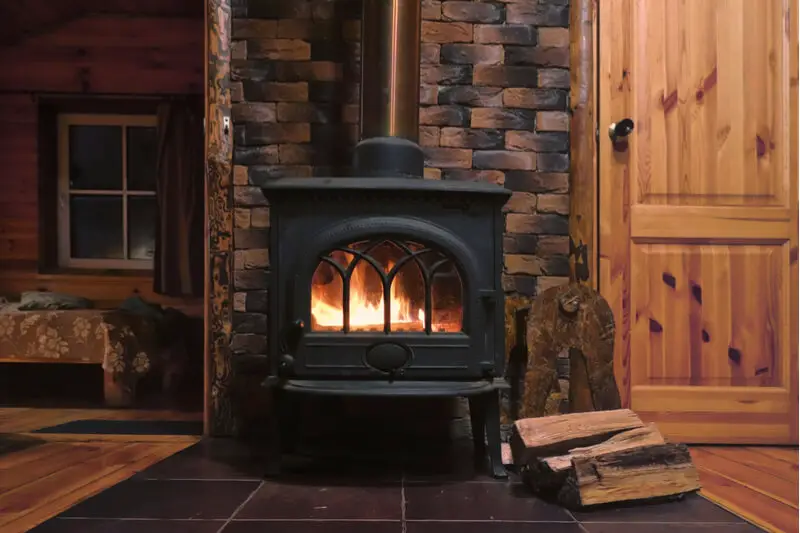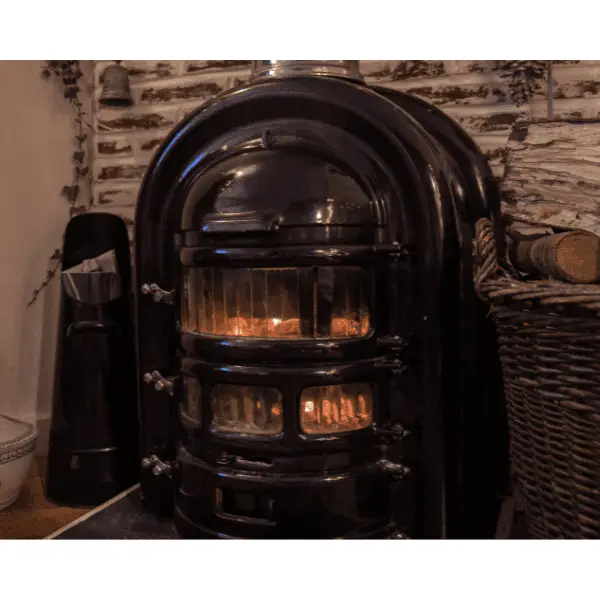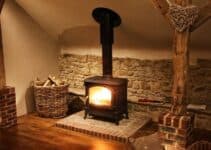Because of the materials used and their purpose, log burners are usually very heavy. Even small stoves weigh a lot more than you might expect.
So, how much do log burners weigh? Log burners can weigh anything from 60-50kg to 400kg or more depending on the size. This is obviously a large weight range, but this is because log burners can vary massively in size based on their purpose and heat output.
In this article, we’ll look in more detail at the weight of log burners and what factors impact this.
How Heavy is a Typical Wood Stove?
A wood stove is a very heavy thing. A typical wood stove, assuming an output of 8kW is typical, is around 85kg. It’s difficult to provide measurements for a typical wood stove, as this ultimately depends on the size of your room, its insulation, and how much of your house you plan to heat.
Unsurprisingly, there’s a correlation between heat output and weight, although it’s more accurate to correlate heat output and size. Larger stoves give off more heat because they can fit more fuel. By extension, they’re heavier because there’s simply more stove.
Some example weights and heat outputs are:
· 14kW: 123kg
· 8kW: 85kg
· 16kW: 132kg
· 5kW: 68kg
There’s no rule dictating how much a stove weighs based on its heat output, as it can depend on the design and materials used.
How Much Does a Cast Iron Stove Weigh?
A cast iron wood stove can weigh anywhere from 65kg to 220kg or more. A standard 5kW stove, which should be fine for heating a single room, could weigh 68kg to 85kg depending on its style.
Cast iron stoves will often be heavier than steel because the material is more dense.

Why are Wood Burning Stoves so Heavy?
The main reason log burners are heavy is because of the materials used. Generally, a stove will be cast iron or steel, both of which have a lot of mass.
We use these materials to make log burners because they’re excellent conductors of heat. Importantly, they can retain and radiate heat for a long time.
Cast iron is heavier than steel because it’s denser. As such, choosing a steel stove can help you shave a few kg off its weight.
This isn’t always the case, though, as the stove’s style has more of an impact on its weight than its size. For example, you can find an 8kW steel stove that’s 102kg, which is heavier than the weight given above.
Due to the way stoves work, the materials used must be solid. If they were hollow or sheet metal, the log burner wouldn’t have good heat retention and radiation properties.
As such, a large stove made of solid cast iron is going to be very heavy.

Can You Get Lighter Weight Stoves?
There’s not much you can do about wood burning stove weight, as the materials are necessary for its purpose. Each has its own pros and cons that possibly counteract the weight.
For example, cast iron takes longer to heat up but retains heat better than steel. On the other hand, steel is lighter but it’ll cool down faster than cast iron because it’s not as dense.
A compromise that addresses the cons of both materials is a combi-stove. These typically have a steel body and cast iron doors.
The body heats up quicker – and is lighter – but the doors retain heat for longer after the fire has gone out. Choosing a combi-stove means you get the best of both worlds without having to break your back moving it!
Of course, the other way to reduce the weight is to choose a smaller stove. However, this isn’t advisable because your options should be based solely on the size of the space you’re trying to heat.
A stove that’s too small will struggle to bring the room up to temperature and, by extension, will burn through fuel too quickly. Plus, opting for a smaller stove could only save you 10-20kg, which isn’t worth much if you don’t need to move it too often.

How Much Does a Wood Stove Weigh – A Summary
Wow stoves can weigh anything from 60-50kg to 400kg, they are very heavy and there’s not much we can do about it. If you’re conscious of how much a stove weighs and whether it’ll work in your home, make sure you shop around.
There’s enough variation in weight that you should be able to find one with an appropriate heat output-to-weight ratio.


